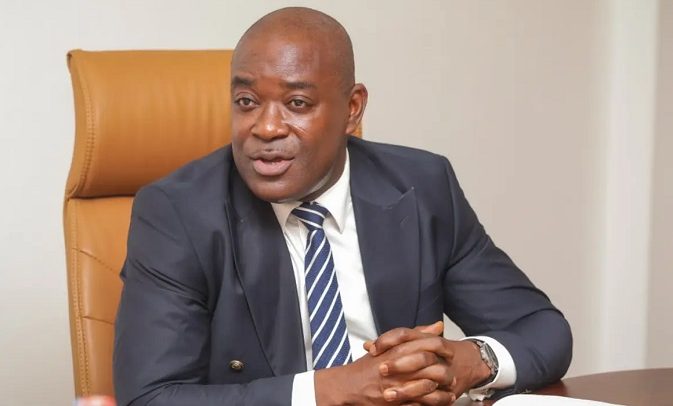
By Prof. Samuel Lartey ([email protected])
The strength and future of any educational system are rooted in how well it supports the well-being and academic stability of its students.
In Ghana, private tertiary institutions play an increasingly important role in educating the nation’s youth and contributing to national development. However, neglecting the critical issues of student affairs, such as financial aid, housing, mental health, and campus security poses a significant risk to the sustainability of these institutions.
Worse still, when students feel abandoned and unsupported in navigating their educational destinies, they often seek alternative means to fulfil their ambitions. This has led many students in private institutions to embrace political ideologies, activities and alignments on campuses, often as a survival mechanism.
With political parties eager to gain influence and votes from the youth, students are drawn into the complex web of national politics, seeking funding and influence. This article explores the growing crisis of student affairs neglect, its impact on private tertiary education, and the historical development of student political engagement in Ghana.
The growth of private tertiary institutions in ghana
Private tertiary education in Ghana emerged in response to the rising demand for higher education in the 1990s. With public universities such as the University of Ghana, Kwame Nkrumah University of Science and Technology (KNUST) and the University of Cape Coast unable to accommodate the growing number of applicants, private institutions began to fill the gap.
Institutions like Ashesi University, Central University, Regent University College of Science and Technology and Valley View University became pioneers of this movement.
The risks of ignoring student affairs
The most immediate consequence of neglecting student affairs is the creation of an environment where students feel abandoned and unsupported. Financial hardship, inadequate housing and mental health challenges become overwhelming for students when no adequate support systems are in place.
When students are crowded out of institutional support, they are often left to navigate these challenges on their own, a reality that significantly increases drop-out rates and hinders their academic performance.
- Financial instability and high drop-out rates. Private tertiary institutions in Ghana are heavily dependent on tuition fees, leaving students vulnerable to financial pressures. Many students struggle to pay for their education; and without sufficient financial aid or government support, they are forced to drop out.
A 2021 report by the National Union of Ghana Students (NUGS) revealed that 60 percent of students in private institutions face significant financial challenges. The Ghana Center for Policy Analysis (CEPA) also estimated that in 2019, high drop-out rates in private universities cost the Ghanaian economy GH?300million annually in lost productivity.
- Reputational damage and declining enrolment. Ignoring student affairs can lead to widespread dissatisfaction, which often manifests in protests and negative media attention. In 2021, protests at some private institutions over poor living conditions and inadequate financial aid resulted in campus closures and tarnished the reputations of these universities.
In today’s competitive education landscape, reputation is everything. Institutions that fail to address student needs risk losing future enrolments, as prospective students and parents gravitate toward institutions with better support systems.
- Students orphaned and vulnerable to political manipulation. When left without the necessary support to achieve their educational goals, students often turn to alternative sources of funding and support. This is where political parties step in.
Students, particularly in private institutions, have become vulnerable to political manipulation. Political parties, seeking the support of the youth in the form of votes, often provide funding for student activities, scholarships, and even essential services on campus. As a result, students – who should be focused on their education – become politically-aligned and involved in party activities, diluting their academic focus.
This trend has a long history in Ghana, dating back to the early 1970s, when student groups and unions began to align with national political movements. Over the years, student engagement in politics has become more pronounced, especially during election seasons. Political parties have capitalised on students’ financial vulnerabilities, offering them temporary relief in exchange for loyalty and participation in political campaigns.
The historical development of student engagement in politics
The involvement of students in political movements in Ghana dates back to the colonial era when student unions and groups played a pivotal role in the country’s independence struggle. Throughout the 1960s and 1970s, students became increasingly active in advocating for political and social change, often aligning themselves with political parties and ideologies.
In the post-independence period, student unions, such as the National Union of Ghana Students (NUGS), continued to wield significant political influence. However, the nature of student political engagement shifted in the 1990s with the liberalisation of the education sector and the introduction of private universities.
Unlike their counterparts in public institutions, students in private tertiary institutions found themselves largely excluded from the support structures available in public universities, pushing them to seek alternative forms of engagement and support.
This evolution of student political engagement, driven largely by economic hardship and the lack of institutional support, continues to shape the political landscape in Ghana today. Students are increasingly seen as key political assets, with parties vying for their allegiance. This not only distracts students from their academic goals, but also places them at risk of exploitation by political actors.
The financial implications of ignoring student affairs
The neglect of student affairs has far-reaching financial consequences for both the students and the institutions themselves. As mentioned earlier, the high drop-out rate among students in private tertiary institutions leads to significant financial losses for both the institutions and the national economy.
In addition, when students are left to seek support from political parties, they often compromise their academic integrity and performance, which has long-term implications for their employability and economic contribution.
- Impact on institutional sustainability. When students drop out due to financial or personal challenges, institutions lose not only tuition fees but also their competitive edge. Private universities, which already operate on tight budgets, are particularly vulnerable to the financial impact of high drop-out rates.
A GH?500million combined budget deficit reported by the Ghana Tertiary Education Commission (GTEC) in 2022 highlights the financial struggles faced by private universities.
- Impact on national development. Students who fail to complete their education due to a lack of support are less likely to contribute meaningfully to the workforce. Ghana’s youth unemployment rate, which stood at 13.4 percent in 2023, is exacerbated by the fact that many students are unable to secure the qualifications necessary for employment. Moreover, students who become overly involved in political activities often lose sight of their academic goals, further reducing their chances of contributing to national development.
The need for institutional and governmental support
Addressing student affairs is not just about improving the quality of education; it is also about ensuring the long-term sustainability of private tertiary institutions in Ghana. To achieve this, both institutional and governmental support is required.
- Financial aid and scholarships. Government’s support for students in private institutions must increase. In 2023, less than 10 percent of student loans and bursaries were allocated to students in private tertiary institutions, even though these institutions educate nearly 40 percent of Ghana’s tertiary students.
- Expanding financial aid programmes and creating more scholarship opportunities will help alleviate the financial pressures faced by students, reducing their need to seek external support from political parties.
- Improved infrastructure and student services. Private institutions must invest in improving campus infrastructure, housing and mental health services. Institutions that prioritise students’ welfare will not only improve retention rates, but also attract more students. Partnerships with local communities, as seen in Accra where local landlords provide safe, affordable housing for students, can also help reduce the financial burden on institutions.
- Reducing political manipulation. Universities and the government must work together to create a supportive environment that reduces the need for students to align with political parties for survival. Clear policies and regulations governing student political engagement can help ensure that students are not exploited by political actors.
At the same time, universities should encourage students to engage in constructive political activities that do not compromise their academic focus.
Conclusion
The future of private tertiary education in Ghana is at risk if student affairs continue to be neglected. When students are left to manage their educational destinies without adequate support, they become vulnerable to political manipulation, jeopardising their academic success and future contributions to the workforce.
By addressing the critical issues of financial aid, student services and political engagement, Ghana’s private tertiary institutions can ensure their sustainability and continue to play a vital role in national development.
For both the government and private institutions, investing in student welfare is not just a moral obligation; it is a sound financial and strategic decision. The time to act is now, before the risks of inaction irreversibly damage the future of Ghana’s private tertiary education system.
The post The silent crisis: ignoring student affairs and its threat to tertiary education appeared first on The Business & Financial Times.
Read Full Story






Facebook
Twitter
Pinterest
Instagram
Google+
YouTube
LinkedIn
RSS